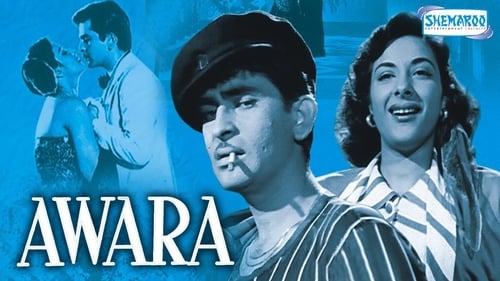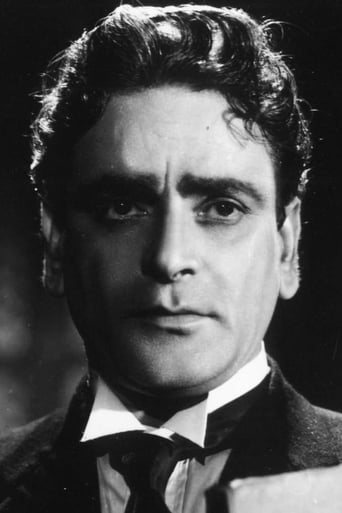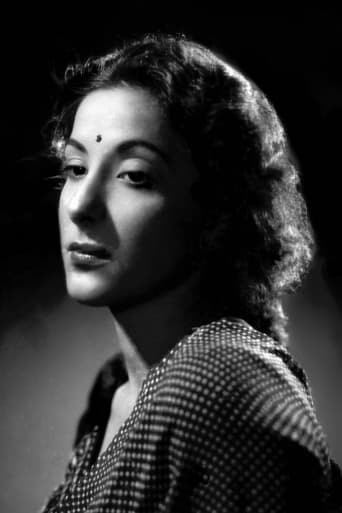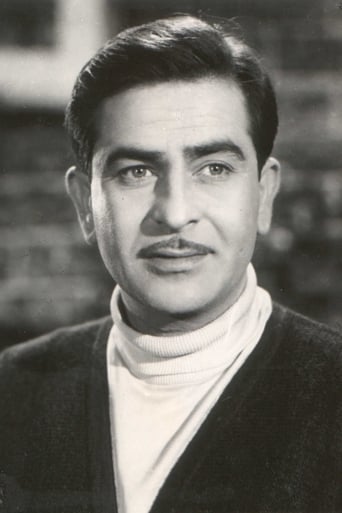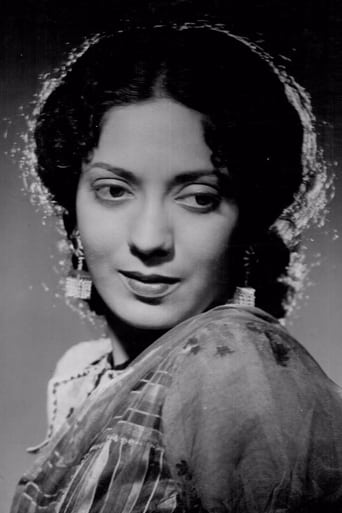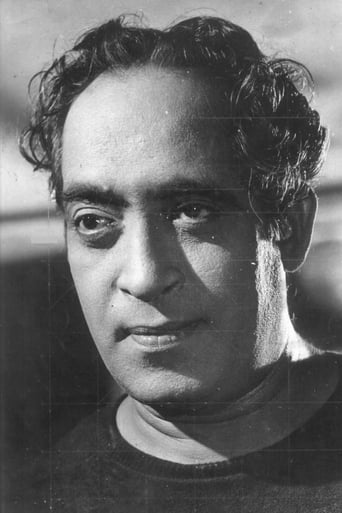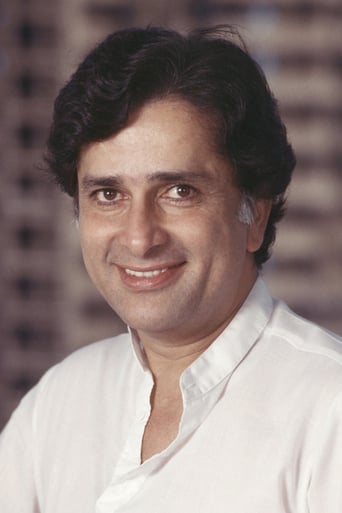Lovesusti
The Worst Film Ever
Evengyny
Thanks for the memories!
ShangLuda
Admirable film.
jmathur_swayamprabha
Actor-producer-director Raj Kapoor has given many excellent movies to the Hindi movie audience, yet Aawara stands tall among them all. It's a movie which is not only considered a classic by critics from all strata and categories but also got thumping commercial success also. Its song in Mukesh's immortal voice - Aawara hoon, found itself echoeing not only in the streets and corners of India but also Russia and China.Nature vs. Nurture is an ages old controversy starting from the plants and small creatures but extended to human-beings also. Can the acquired characteristics be transferred through genes ? Is it necessary that a baddie's offspring will turn into a baddie only and good soul's offspring will develop as a good and virtuous human-being only ? No ! The movie answers. As far the development of characteristics and personality traits are concerned, nurture has a much bigger (perhaps the only) role in that instead of nature or the acquiring of things by birth.Aawara starts with the trial of Raj Kapoor with his biological father, Prithvi Raj Kapoor being on the other side and his lady-love, Nargis as his defence attorney. The story moves to flash back with the abduction of Prithvi Raj Kapoor's wife, Leela Chitnis by a baddie, K.N. Singh. However when she returns, she has to face the horrible truth of suspicion in the eyes of her household members that she was raped by K.N. Singh and the child being carried by her in her womb belongs to K.N. Singh and not Prithvi Raj Kapoor. The insect of suspicion, eats up the wisdom of Prithvi Raj Kapoor and he expells his pregnant wife from his home. She gives birth to a son and fosters him under the hope that he will become a learned man like his father. However, poverty and hunger throws him in the arms of K.N. Singh only who is hell-bent upon inflicting a life-long bitter revenge upon Prithvi Raj Kapoor who had ensured a harsh sentence for him. He develops Raj Kapoor as a baddie only and one day himself gets killed by him. When Raj Kapoor is tried for the murder charge, Nargis reveals the truth that Raj Kapoor is none else but the son of Prithvi Raj Kapoor himself. Ultimately the father recognizes and embraces his son who is sentenced to prison for the murder.Aawara emphatically underscores the fact that it is ultimately the nurturing and the environment which matters in the development of the personality of a child. The child of a highly learned, pious and virtuous family may become a criminal in the company of bad guys and the child of a sinful person may become a very nice and admirable person by getting the fosterage of a pious family / group. Raj Kapoor has given admirable direction to the story, written by Khwaza Ahmed Abbas. The narrative has been made entertaining, not sermon-heavy. There is ample doz of comedy, romance and melody in the movie. The scene in which Raj Kapoor beats himself behind the wall to win the heart of Nargis, is hilarious. The master story-teller has used symbols quite artistically to signify different events. The use of moon in the song - Dumb Bhar Jo Udhar Munh Phere is a marvellous example in this context.Raj Kapoor was a shrewd filmmaker. He used to deliver entertainment enveloped in message instead of delivering message enveloped in entertainment. He has done the same thing in Aawara too. The movie supposedly underscore the supersession of nurture over nature. However when Nargis tries to convince Prithvi Raj Kapoor that Raj Kapoor is indeed his son, she brings the point of his anger which is a ditto of his father. What does it underscores ? Definitely the transition of acquired characteristic through genes. Further, if Raju becomes a good man in the end, ultimately the theory of his father only comes true that a good man's offspring is meant to be a good one. This shows the triumph of nature, not nurture.The technical and production value aspects are quite according to the standards set by Raj Kapoor for the movies of his banner. This black and white movie reminds of the noir cinema of the forties. Raj Kapoor's permanent cameraman, Radhu Karmakar has caught the mood of the movie very well through his camera.The music of Shanker-Jaikishan is great. The song - Aawara hoon had almost become the national anthem at the time of the release of the movie and even today, after sixty years, it is as popular as it was at that time. The other songs of the movie are also no less by any means.The performances of Nargis, Leela Chitnis, K.N. Singh etc. are very good. I will mention two actors- Prithvi Raj Kapoor who has delivered a towering performance in the role of judge Raghunath and Shashi Kapoor who has played the childhood version of Raj Kapoor quite briliiantly at the tender age of 13 years. Raj Kapoor, as the perennial Raju, has again done well with his mannerisms.In the end, I just put up one point which always haunts me whenever I read any such thing or any such movie (including the Ramayan) that to which extent it is justified to harass a woman under suspicion of being raped and carrying an illegitimate child in her womb due to that incident. Though the movie was made in 1951, still the people's psyche is more or less the same in the Indian society. Had Raj Kapoor's mother, Leela Chitnis been actually raped by K.N. Singh, would Prithvi Raj Kapoor be justified in expelling her from the house (that too in the pregnancy state) ? Why should a woman be punished for a crime committed by a man and that too by quoting Lord Rama and justifying this injustice to the woman with the example of Lady Sita ? This question always makes me uncomfortable.
theskulI42
Ah, the Indian film industry. The only place where it's acceptable to burst out into song regardless of the depressing, dire straights of turmoil you may find yourself in. While it wasn't as jarring as having characters belt out jaunty numbers in the middle of their family crises in Mother India, Raj Kapoor's Awara is most definitely melodramatic enough to have the singing seem both out-of-place and completely appropriate.The film is a bit of a social plea to LOOSEN UP, depicting a harsh but respected judge (Prithviraj Kapoor, the director's own father) who sentences an innocent man on the conviction that a criminal's son would end up on a criminal. His blind belief is put to the test when he is estranged from his wife and son, Raj (director Raj Kapoor), who in turn grows up to become a petty thief.The film's plot, criticism and metaphor are fairly obvious, and the film is of course WAY too long (at a whopping 168 minutes), but more fascinating to examine is the relationship between Raj Kapoor and his father Prithviraj. Is it just a matter of both being actors so playing father-son helps the resemblance, or is there some sense of offspring rebellion, that his father expected his son to synthesize his steps incrementally, and that the son, despite the fact that it DID come true, still resents the father for pushing so hard? This is all speculation, but it's intriguing stuff.As for the film, the leads are what keep this bloated ship afloat. Both Kapoof men, as well as the coincidental female love interest Nargis (who he keeps seeming to run into AND was adopted by his dad, who has a kind of creepy subtextual desire in his eyes about her). There's an extended dream sequence packed into the middle of the film brought to mind the finale of the same year's An American in Paris, in that it is impressive and beautiful, but ruins the flow of the film and serves no bearing to the plot at large. Every subtext of the sequence has already been spelled out, and it proves an unwelcome impediment to the resolvement of the plot.The film's last reels involve a genius bit of setting, as some of the most nakedly emotional moments in the film are set on an extremely windy beach, getting around the criticism of the 'wind in the hair' cliché by positing its characters in a place where that sort of wind could be expected. It gets that sort of grandiose, but never falls apart, and despite its length and simplistic plot, it never lost me for good, and although it didn't knock me out like the greatest of Indian cinema, it was definitely a worthwhile marathon jaunt.{Grade: 7.75/10 (B/B-) / #12 (of 16) of 1951}
aswang_purrmeow
I have always like watching movies. However, as time went by, I have only known of Hollywood, European, Japanese, and Filipino cinema. When I learned that Awara is one of Time Magazine's Top 100, I got a copy. The movie called my attention because I haven't seen a Bollywood movie. I watched Awara, and I was entertained. All the genre you can think of, you'll find it there. Name it: melodrama, action, comedy, romance, music, fantasy. Raj Kapoor craftily weaved them in the almost three hour-long classic.Behind the melodrama is the social commentary. The conflict between a person versus the orthodox beliefs of the milieu is a recurring theme each of us face in everyday life. Pressures to adhere to the norm led the main character to his plight. Children growing up in squalid areas is an important issue tackled.The musical sequences showed the movie's multi-faceted nature. It showed references to Chaplin, Rodgers/Hammerstein, and the like. Particularly amazing is the dream sequence in an east meets west setting. Elements of Hindu-Buddhist mythology are mingled with those of ancient Greco-Roman.The eclectic experience solidified my belief that Bollywood is indeed a pillar of world cinema. I look forward to watching more.
Mehmet Mutlu Ozdemir
This movie is itself a legend. In 1988 TRT (Turkish national television) was to show that film. As I was a little child I could not now about the movies but that day my mother, grandmother, my uncles wife all got together and prepared delicious foods, and watched that movie on TV. Perhabs on that day all women in Turkiye were watching that film. Mavi Boncuk, a delicious movie has reference to this film. On that movie Munir Ozkul says: - Aaah Awaara (at the time he looks to Awaara's poster) I've grown my children by selling it's tickets, played for 6 months on those days.It is a fact that Awaara was a great success, on those days a film was playing for only a week but Awaara was in vision for 6 great months. I only remembered a scene from the film I watched when I was 6 years old, this is the scene that Raju stole a watch. Then 3 years ago I bought this film and watched with friends, my friends were very impressed with the movie, and we watched again and again.Awaara is a milestone for Turkish cinema, it is filmed again by great Turkish actor Sadri Alisik in 1966. Arabesk is stated to enter Turkiye with Awaara. Adalet Cimcoz and Ferdi Tayfur spoke Nargis and Raj Kapoor in Awaara's Turkish dubbing version and film is great with that excellent dubbing.Films song is also sung in Turkish lyrics by Sadri Alisik and song was also a hit.







